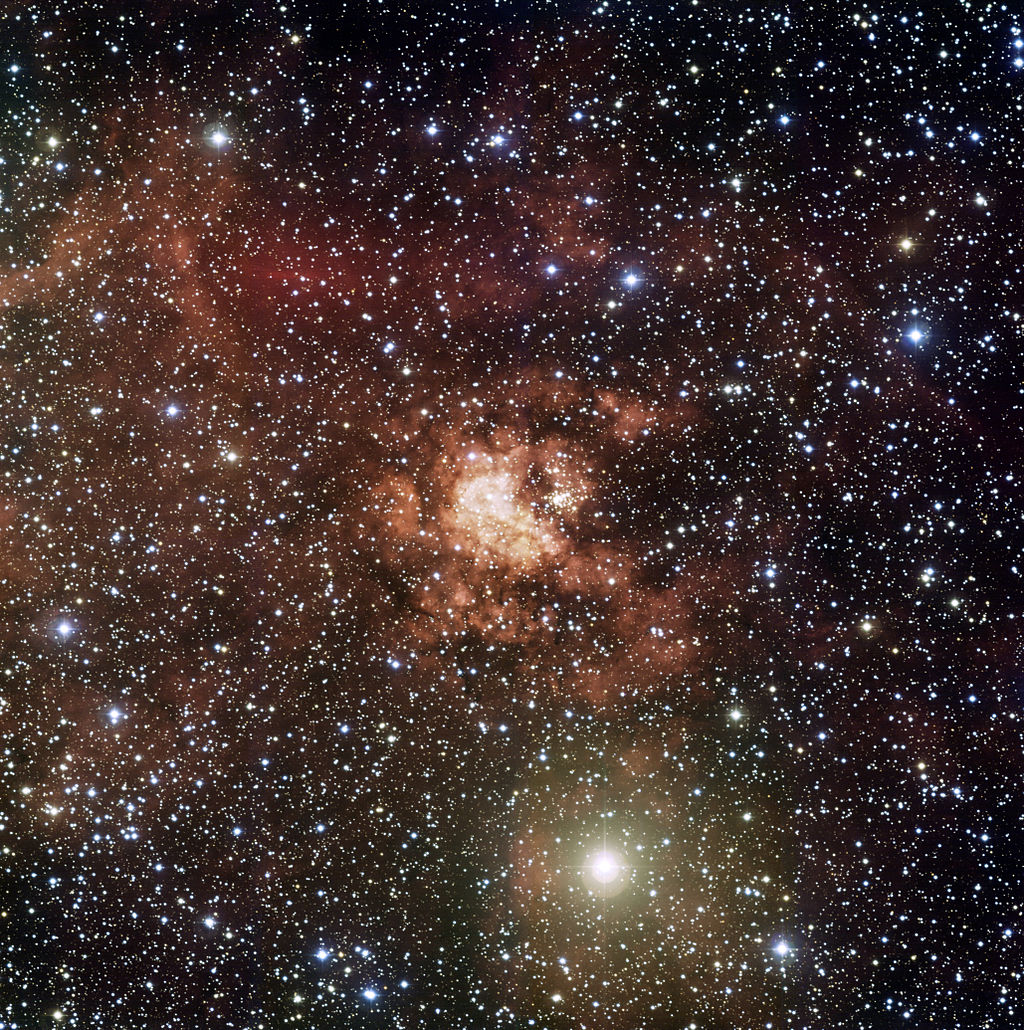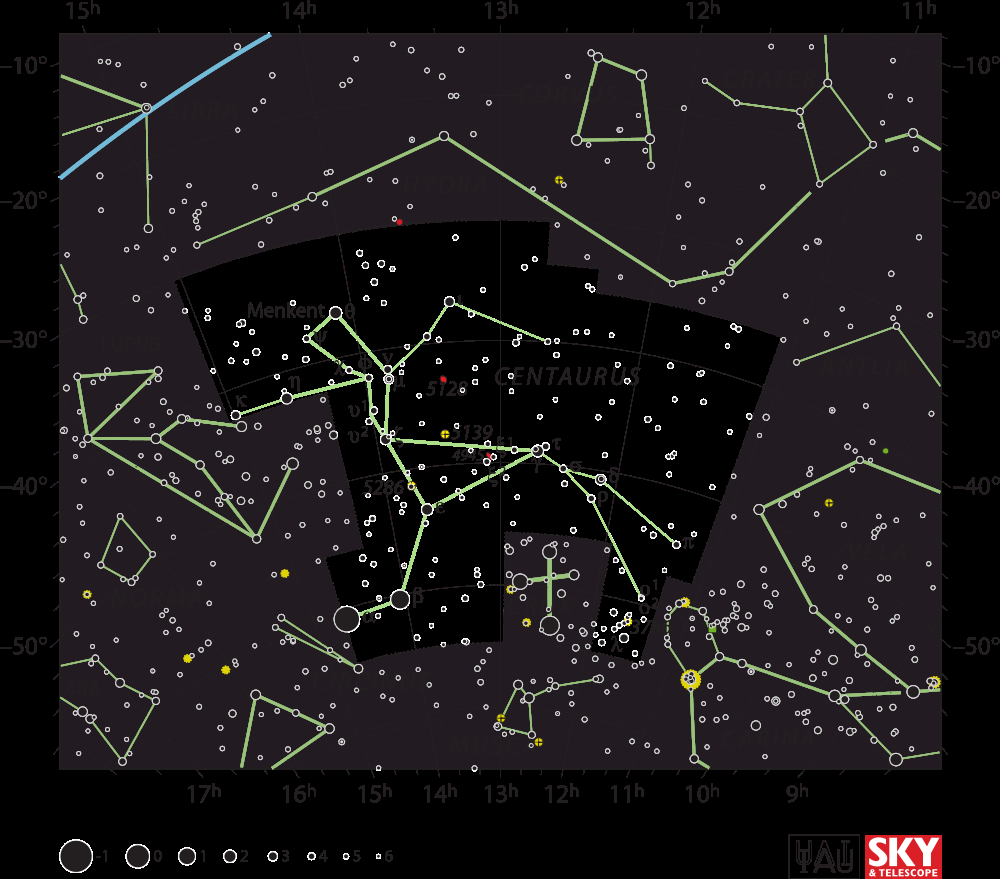
By IAU and Sky & Telescope magazine (Roger Sinnott & Rick Fienberg) [CC-BY-3.0], via Wikimedia Commons
"The Centaur"

By IAU and Sky & Telescope magazine (Roger Sinnott & Rick Fienberg) [CC-BY-3.0], via Wikimedia Commons
Abbreviation: Cen
Genitive: Centauri
Constellation family: Hercules
Nearest constellations: Antlia, Carina, Circinus,
Crux, Hydra, Libra, Lupus,
Musca, and Vela
Right ascension: 13.13h
Declination: -45.96°
Visible between latitudes: +30° and -90°
Square degrees: 1060
Luminary: Rigil Kentaurus (Alpha Centauri)
Named stars: Rigil Kentaurus, Hadar, Menkent
Notable deep sky objects: NGC 3918 (Blue Planetary), NGC 5128 (Centaurus A), NGC 5139 (Omega Centauri)
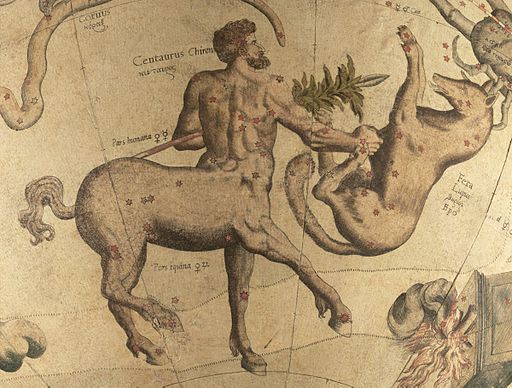
By Gerard Mercator (1512-1594) [Public domain], via Wikimedia Commons
Centaurus is one of the largest constellations in the sky and contains the highest number of stars visible with the naked eye. It is located in the Southern Hemisphere and can best be seen in May.
Rigil Kentaurus, also called by its Bayer designation of Alpha Centauri, is Centaurus' most luminous star and is the third-brightest star in the night sky. It is a double star system consisting of Alpha Centauri A—a yellow star 25% larger than the Sun—and Alpha Centauri B, an orange star smaller than the Sun.
Near Rigil Kentaurus is Proxima Centauri, which is the closest known star to Sun at 4.24 light years away although it is not visible to the naked eye.
In Greek mythology, Centaurus represents the centaur Chiron. Chiron was accidentally shot by Heracles (also known by the Roman name of Hercules) and seriously injured; Chiron was honored by Zeus by being placed in the sky.
Alpha Centauri:
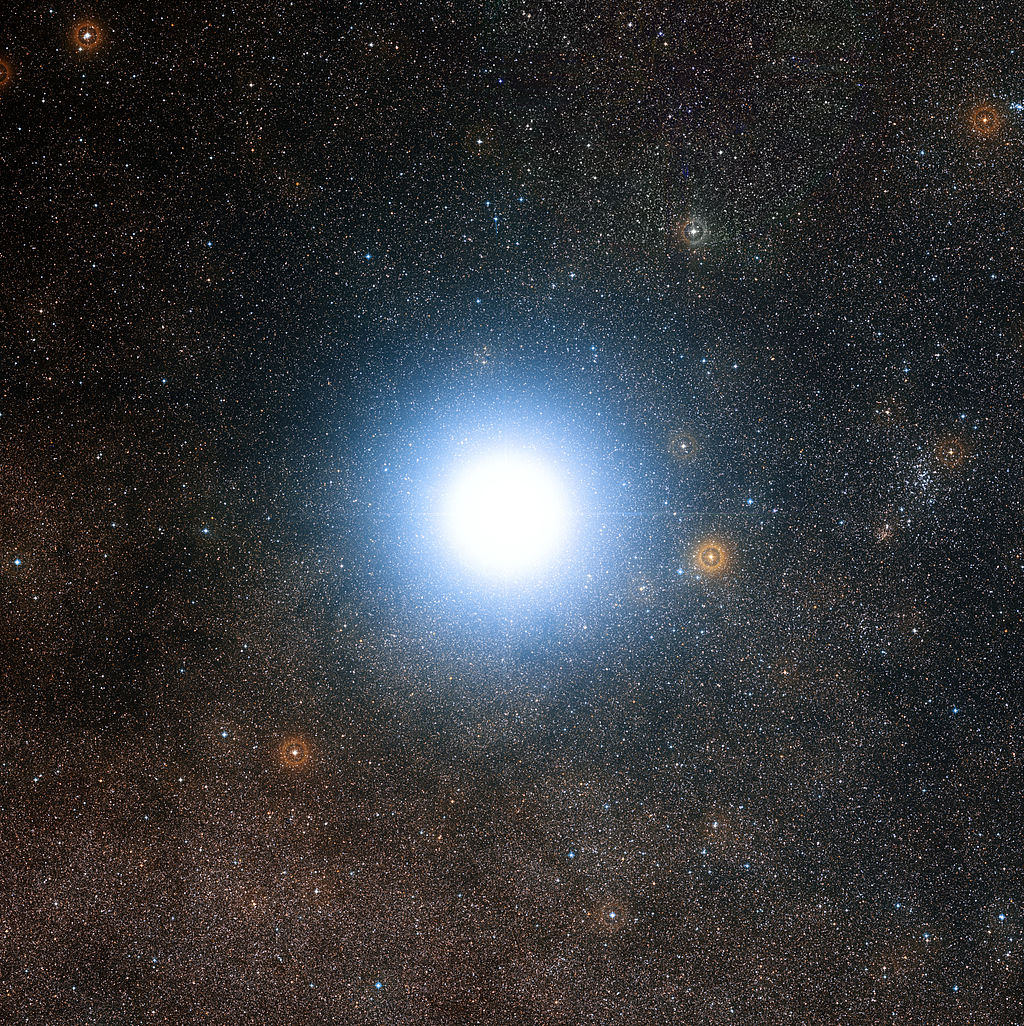
By ESO/Digitized Sky Survey 2, acknowledgement: Davide De Martin [CC-BY-4.0], via Wikimedia Commons
Part of galaxy NGC 5128 (Centaurus A):
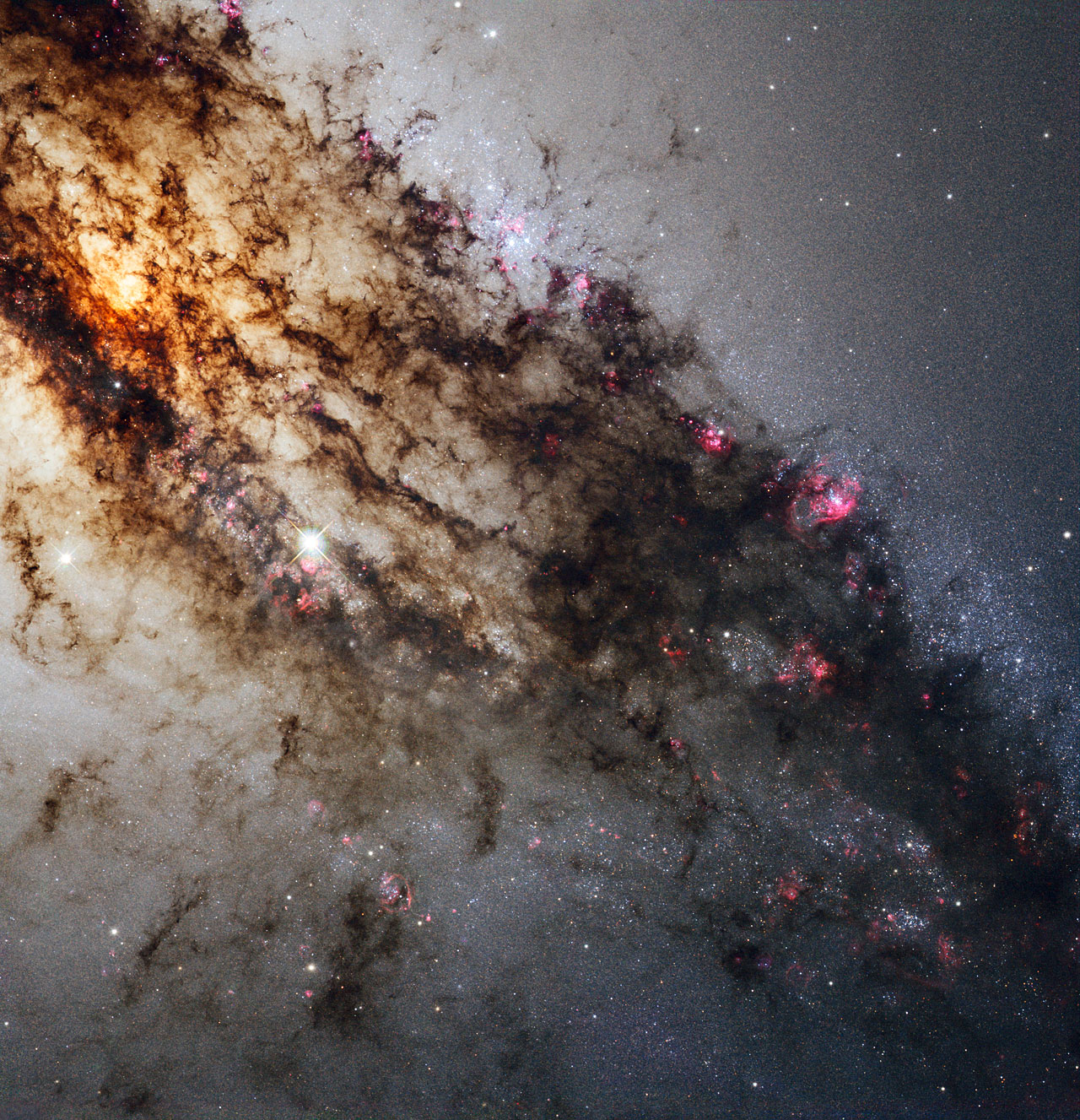
NASA, ESA, and the Hubble Heritage (STScI/AURA)-ESA/Hubble Collaboration, Acknowledgement: R. O’Connell (University of Virginia) and the WFC3 Scientific Oversight Committee [CC-BY-3.0], via ESA/Hubble
NGC 3918 (Blue Planetary nebula):
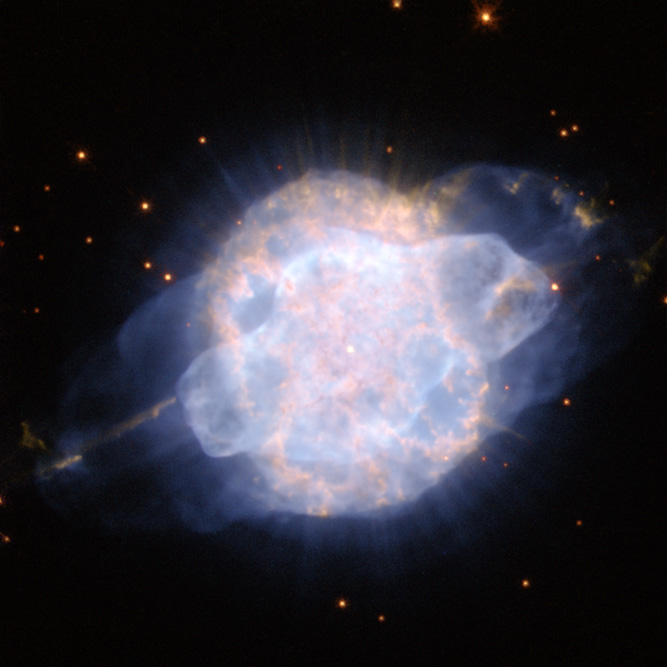
By ESA/Hubble and NASA [CC-BY-3.0], via Wikimedia Commons
Gum 29 (emission nebula):
